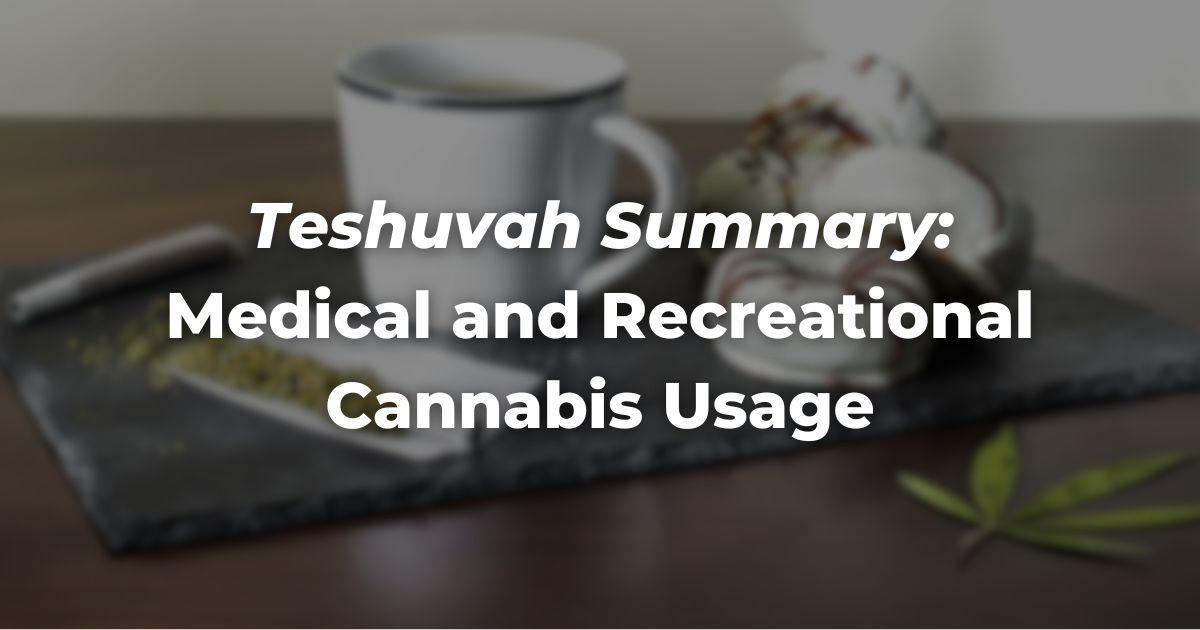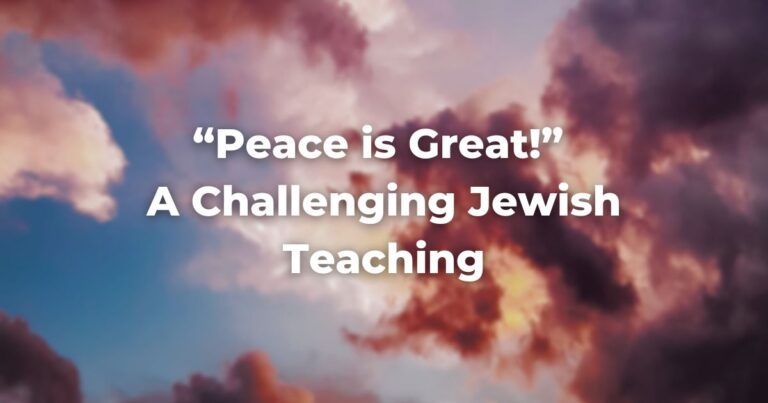This is a summary of a CJLS teshuvah written by Rabbi Raysh Weiss and approved by the committee in 2023. We strongly recommend reading the complete teshuvah and consulting with your local rabbi for guidance.
Central Question
What is the halakhic and Jewish ethical status of consuming, possessing, and selling cannabis for both medical and recreational purposes?
Core Argument
Rabbi Raysh Weiss examines cannabis usage through multiple perspectives—scientific, medical, historical, sociocultural, and halakhic—while carefully distinguishing between medical and recreational use. The teshuvah emphasizes that Jewish law must balance health, holiness, and justice, with cannabis’s permissibility depending on context, purpose, and risk.
Historical and Medical Context
Cannabis has deep historical roots in Jewish and surrounding cultures, with possible references in biblical and rabbinic texts. Modern medical research, particularly the groundbreaking work of Israeli chemist Raphael Mechoulam, has demonstrated cannabis’s effectiveness in treating specific medical conditions such as epilepsy and chemotherapy side effects. However, long-term effects remain under-researched.
Halakhic Framework
Jewish law prioritizes life and health through three key principles:
- Pikuach nefesh (saving life)
- V’nishmartem me’od lenafshoteichem (guard your health)
- Kedoshim tihyu (be holy)
These principles guide the teshuvah’s endorsement of medical cannabis when prescribed and supervised by a trusted medical professional.
Recreational Cannabis Concerns
Recreational cannabis presents more complex halakhic and ethical challenges, including:
- Cognitive risks, especially for youth
- Potential for dependency
- Impaired judgment that may affect mitzvah observance
The teshuvah cites classical and contemporary rabbinic voices who caution against recreational intoxication, raising concerns about health, sanctity, and free will.
Legal vs. Halakhic Considerations
The teshuvah critiques overreliance on legal principles such as dina d’malkhuta dina (the law of the land is the law) and puk ḥazei mai amma davar (observe how people are acting). Instead, it emphasizes the need for halakhic integrity and careful moral discernment.
Ritual Practice Guidelines
- Blessings: Edible cannabis requires a berakhah (blessing), while smoking or non-flavored medicinal forms typically do not
- Kosher requirements: Processed edibles like gummies need kosher certification, especially those containing gelatin
- Holiday restrictions: Cannabis should generally not be consumed on fast days or Jewish holidays, except for medical necessity
Final Rulings (Piskei Din)
The following rulings are taken directly from the teshuvah.
Psak #1: Medical Cannabis (Approved 19–1–0)
It is permissible to consume medically prescribed cannabis under the continued supervision of a trusted and accredited medical professional.
Psakim #2–7: Recreational and Ritual Use (Approved 9–6–5)
- General recreational use: In contexts where a consensus of medical research and advice deems recreational cannabis safe, recreational cannabis consumption is allowed where permitted by civil law.
- Smoking prohibition: Following Rabbi Reuven Hammer’s 2020 responsum “Teshuva Concerning Smoking,” and acknowledging the established adverse health effects of smoking, this responsum prohibits recreational use of cannabis in its smoked form.
- Youth prohibition: Consumption of recreational cannabis by youth is prohibited, based on available data indicating numerous health risks, including long-term cognitive decline and reproductive consequences. Recreational use is illegal for minors in all U.S. jurisdictions.
- Communal context: Presently, cannabis should not be consumed recreationally in official Jewish communal contexts (such as synagogues, JCCs, or schools). This position is subject to change as more research becomes available on long-term effects.
- Blessings required: Blessings are required for edible forms of cannabis.
- Fast day restrictions: With the exception of medically prescribed cannabis deemed essential for health, cannabis is forbidden on fast days.
Additional Notes
The teshuvah encourages a cautious, evolving stance on cannabis use. While acknowledging civil legalization and cultural normalization, halakhic decisions must prioritize health, sanctity, and communal dignity. Future reassessment is encouraged as medical research advances.
A Dissenting Opinion
Rabbis Fine and Leff, while supporting medical cannabis, object to the blanket prohibition on smoked recreational use (Psak #3). They argue this ruling misapplies data about tobacco, fails to differentiate risk levels, and sets an inconsistent halakhic standard.
Many activities (e.g., drinking wine, eating sugar, skiing) carry some health risk yet remain permitted. They propose three guidelines: minimize personal harm, protect others (especially from secondhand smoke), and comply with civil law. In short, they support cautious, legal recreational cannabis use—including occasional smoking—without labeling it inherently sinful.You can read their dissent here.
Author
-

Exploring Judaism is committed to transparency. We are experimenting with AI for tasks such as summaries or data sorting. Our goal is to increase the volume of available materials; as such, we have used an AI to create this summary. Anytime you see EJ AI as an author, a human is driving the project. We are currently experimenting with ChatGPT, Claude.AI, and Gemini from Google. We have turned off any features that will affect our copyright.
View all posts




